12 Apr 2021 - {{hitsCtrl.values.hits}}
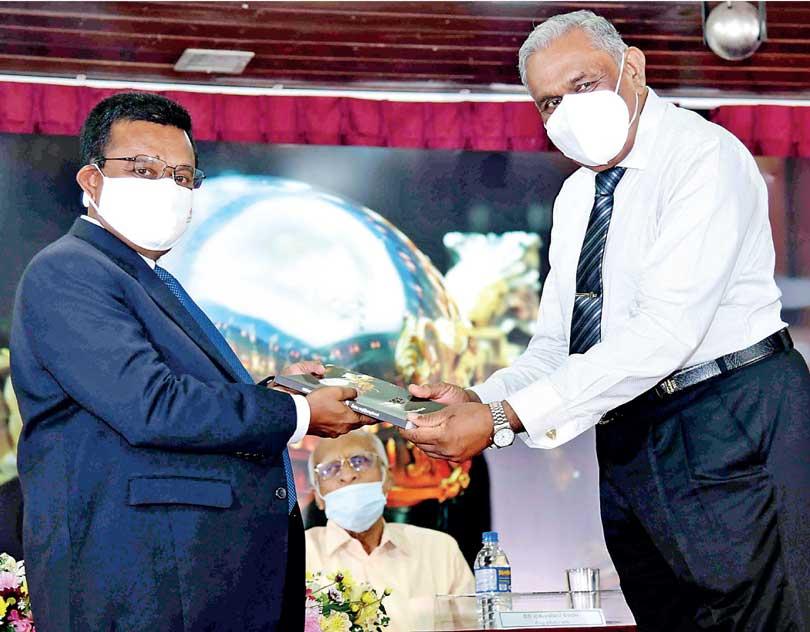
Palliyaguruge presenting book to parliament secretary General Dhammika Dasanayake
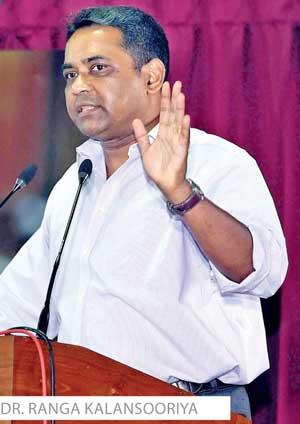 The speech made by renowned media activist and good journalism defender Dr. Ranga Kalansooriya at the recent launch of the book “Senkolaya Surekkemi (Protected the Mace)” by former Serjeant-at-Arms of Parliament Wijaya Palliyaguruge, has triggered stimulating discussions in the social media especially. His opinions centered on the paradox between norms of popular politics and basic values of liberal democracies in the contemporary global political landscape.
The speech made by renowned media activist and good journalism defender Dr. Ranga Kalansooriya at the recent launch of the book “Senkolaya Surekkemi (Protected the Mace)” by former Serjeant-at-Arms of Parliament Wijaya Palliyaguruge, has triggered stimulating discussions in the social media especially. His opinions centered on the paradox between norms of popular politics and basic values of liberal democracies in the contemporary global political landscape.
Edited excerpts of the speech of Dr. Ranga Kalansooriya follows:
Former Serjeant-at-Arms Palliyaguruge through a 35-year old memoire of his Parliamentary career recollects and shares some of his first hand tell-able experiences with the readers. In fact, the first manuscript had 50 stories but his reviewer former Assistant Secretary General of Parliament C. W. Pannila had advised Palliyaguruge to eliminate twenty incidents from the book. Thus, the book came out with 30 incidents. The ‘Black Magic interventions within Parliament Chambers by a former President, the slapping incident by a former female Premier on her son near the Parliament elevator were among those left out.
The former Serjeant-at-Arms’ revelations elaborate the tireless efforts of an official of the supreme legislature to protect the values of liberal democracy. The Mace symbolizes the supremacy of the legislature and Serjeant-at-Arms is the main custodian of this cardinal democratic icon. Palliyaguruge explains with many examples how he attempted to protect the Mace mainly when it was hijacked or taken away by rioting parliamentarians on several occasions. The event was graced by Dhammika Dassanayake the Secretary General of Parliament and his predecessors – Nihal Seneviratne, Dhammika Kuthulgoda and Priyani Wijesekera along with former minister DEW Gunasekera who had proposed Palliyaguruge to write the book during his speech at the debate to honour the then retiring Serjeant-at-Arms.
“During my speech I attempted to highlight the fact that the basic values of liberal democracies are now in the trend of diminishing or declining in the global context. Recent researches indicate that more than half the world is now living in either diminishing democracies or in political environments where minority rights, media freedom, environment rights or even basic human rights are not respected. According to Democracy Index only 75 of the 167 countries and territories (44.9%) are considered to be democracies, the BBC recently reported. The Swedish based democratic research institute V-Dem says pure liberal democracies are home only to 14% of the global population,” Dr. Ranga Kalansooriya said.
Recent researches indicate that more than half the world is now living in either diminishing democracies or in political environments where minority rights, media freedom, environment rights or even basic human rights are not respected
The most interesting example of this phenomenon is the global icon of liberal democracy, India, which has seen a sharp drop in its democratic ranking in the recent past. Freedom House says it is no more a free democracy but a ‘partially free democracy.’ V-Dem thinks that India has shifted from liberal democracy to ‘electoral autocracy.’ In a nutshell, India is not only moving out of values of liberal democracy according to these readings but may also set a negative trend to the rest of the world, or at least to the South Asia on an electoral autocracy.
If you need another case study, look at President Dutarte in the Philippines. Being accused of at least 35,000 extra judicial killings (EJKs as Filipinos call it) on his war against drugs, closing down the country’s biggest broadcaster ABS-CBN, attacking journalists with no mercy, Dutarte still maintains 91 percent of popularity in his fifth year of the term.
It is hard to identify a specific reason for his popularity but a careful analysis would reveal two reasons – no corruption allegations personally against him (though surrounded by cronies) and his simple life style. But these two factors themselves could not keep a leader in such a high popularity rate, I doubt it. We need more academic engagements to read and understand Dutarte, even the Filipinos would agree.
However, the biggest threat to democracy, at least in our part of the world is the military coup that took place in Myanmar on February 1.
Even after more than 550 killings including kids, the international community is still wondering on a possible response. ASEAN has become helpless amidst some isolated efforts by countries like Indonesia and Malaysia while UN Security Council is also becoming impotent given the veto powers of China. Myanmar people have already shown their anger towards China by burning dozens of Chinese businesses in Yangon and its suburb, as they believe its neighboring Asian giant is behind the military coup.
The coup was a direct result of the poor governance by democratic icon Aung Saan Suu Kyi, as per my reading. She failed to use the massive mandate of 86 percent she received in 2015 to bring in a new system of governance. Despite efforts to bring a new constitution she opted for 168 amendments within five years to the existing constitution which was drafted by the military dictator General Than Shwe in 2008 which allocated a 25 percent of seats in Parliament to the men in uniform. The Lady did not communicate well to the Myanmar public, despite her characteristic issues of arrogance and micro-management. Without using her gigantic mandate and popularity to defeat the military, she chose to ‘collaborate’ with the military, which has its own political party (USDP) contesting against her. Without political and strategic tactics, once democratic icon later became a puppet under the iron fist of the decorated Generals. Suu Kyi was struggling with democratic sensitivities while shroud military started playing with cultural sensitivities against her. She was trapped in a conflict in Rakhine State that cost her Nobel Peace Prize while badly damaging her international iconic reputation.
Parallel to this phenomenon, there exist corrupt religious entities that would support the gigantic popularity of these political leaders. These clergymen will not necessarily propagate the message of their spiritual masters but engage in active politics for commercial and other gains
But back home it was a different story. In fact, the political calculation of the military against The Lady was wrong. Her popularity, in the backdrop of ‘Hague Hearings’ were increased and marked a massive victory at the last general elections in November 2020. Given the upcoming developments in The Hague, facing retirement without achieving the dream of Presidency, possible changes to the constitution to oust military from Parliament, the incumbent Army Chief Min Aung Hlaing had no option but to cease power and crack down the entire democratization process.
When analyzing the characters of these extensively popular political leaders – such as Prime Minister Modi and President Dutarte – they are masters in touching the cultural sensitivities of their people. Especially in leaders like Mr. Modi, their skills go beyond cultural sensitivities but reaches the realms of religious sensitivities as well.
As Professor M O A de Zoysa of Peradeniya University once claimed, these popular leaders excel in winning the hearts and minds of the people through religious and cultural sensitivities, but not through democratic value systems.
Anyone who attempts to deal with liberal democratic values entirely neglecting cultural and religious sensitivities would certainly fail in their popularity, he would argue. That is what exactly happened to the democratic icon Aung Saan Suu Kyi.
In fact, parallel to this phenomenon, there exist corrupt religious entities that would support the gigantic popularity of these political leaders. These clergymen will not necessarily propagate the message of their spiritual masters but engage in active politics for commercial and other gains. This relationship remains the most effective hidden factor for the popularity of those political leaders in many cases.
Thus, the book Senkolaya Surekkemi should be reviewed in a context where we need a new struggle to protect basic value systems of liberal democracies against all these odds. There should be a delicate balance between personal popularities of leading politicians and standards of democracies, as both are extremely important for the betterment of a country. We need strong, popular politicians with robust democratic systems. In fact, Serjeant-at-Arms Palliyaguruge has sent a silent message on these lines through his published memoires, Dr. Ranga Kalansooriya said in conclusion.
Pix: by Nisal Baduge
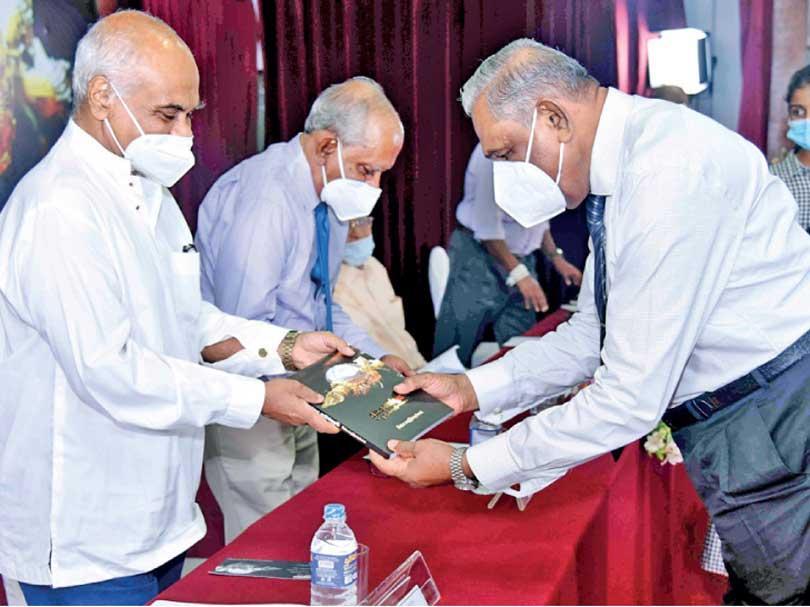
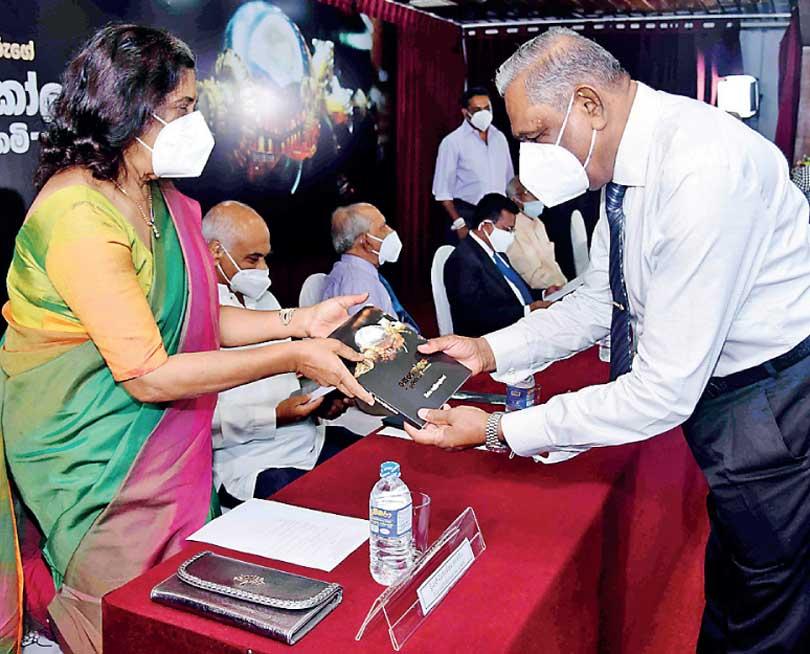
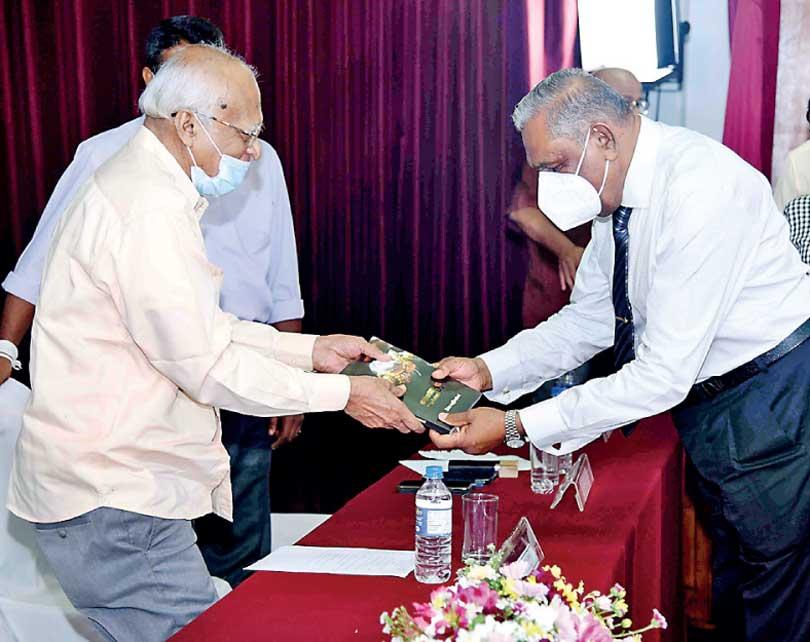
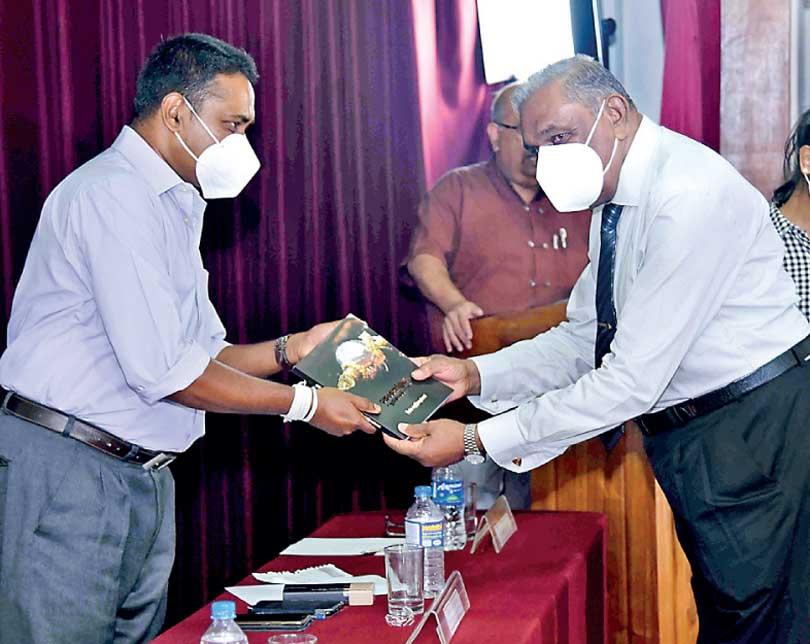
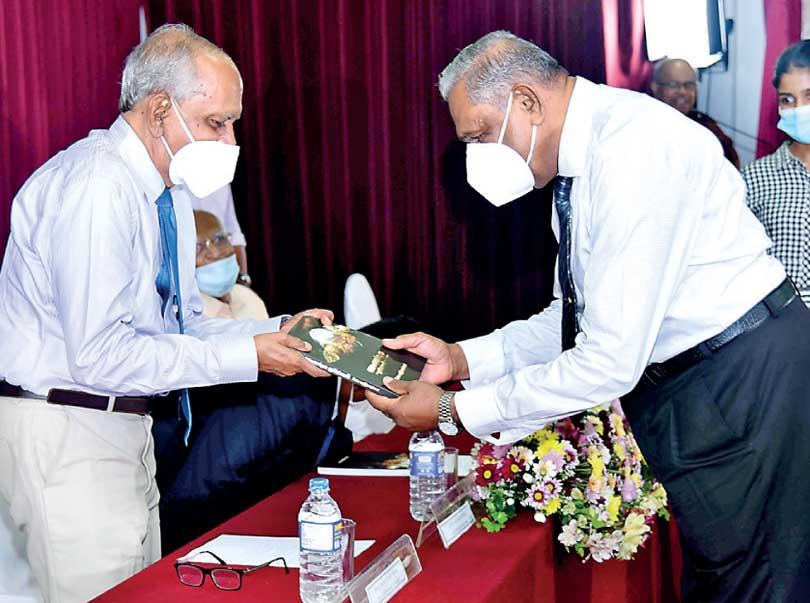
24 Nov 2024 2 hours ago
24 Nov 2024 3 hours ago
24 Nov 2024 4 hours ago
24 Nov 2024 8 hours ago
24 Nov 2024 9 hours ago